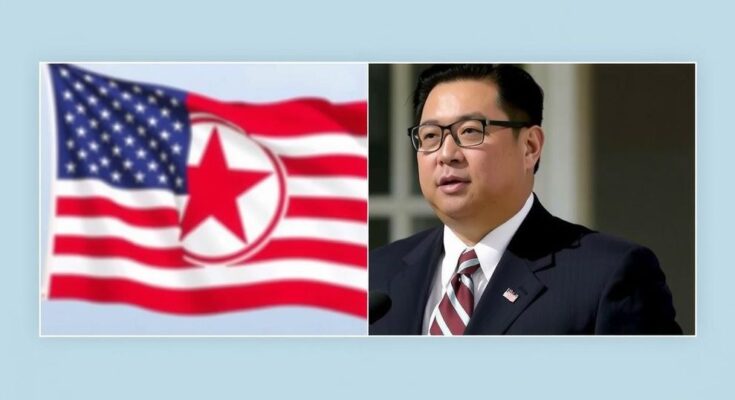North Korea’s Kim Jong Un has announced a determination to implement the “strongest” response strategy against the U.S. during a recent ruling party meeting, addressing national security concerns in light of increasing military cooperation among South Korea, the U.S., and Japan. This meeting also included discussions on past flooding recovery efforts and intentions to strengthen ties with allied nations.
During a recent ruling party meeting, North Korean leader Kim Jong Un articulated a decisive response strategy aimed at the United States, emphasizing the need for enhanced national security measures. This declaration was reported by the state media outlet KCNA, which described the strategy as the “strongest” yet undertaken by North Korea. The meeting, which took place from December 23 to 27, focused on addressing national safety concerns amid escalating tensions with the U.S. and its allies, notably South Korea and Japan.
According to KCNA, this trilateral alliance has evolved into what North Korea perceives as a “nuclear military bloc,” further solidifying South Korea’s role as an “anti-communism outpost” for the U.S. The report indicated that this geopolitical reality has prompted North Korea to reassess its strategies and reaffirm its commitment to protecting its national interests. In addition, the party meeting also examined responses to recent natural disasters and reiterated the country’s intention to foster relations with “friendly” nations.
The conclave concluded with reflections on the year’s significant events, including a recent summit between Kim and Russian President Vladimir Putin, during which they discussed mutual defense agreements. This cooperation has drawn criticism from both Washington and Seoul, particularly regarding alleged military support for Russia in the ongoing conflict in Ukraine, which North Korea officially denies. Overall, this meeting reflects North Korea’s steadfast determination to secure its interests amid increasing regional tensions.
The current geopolitical landscape surrounding North Korea is heavily influenced by its relationships with major world powers, particularly the United States, South Korea, and Japan. With the strengthening of military alliances between these countries, North Korea feels threatened and compelled to enhance its security strategies. Over recent years, North Korea has increasingly vocalized its opposition to perceived encroachments by these alliances into its sphere of influence, often characterizing them as aggressive moves intended to undermine its sovereignty. Additionally, the ongoing cooperation between North Korea and Russia has raised concerns in the West, particularly with respect to military support in the context of the Ukrainian conflict.
North Korea’s recent declaration of a robust response strategy underscores its heightened concerns regarding U.S. military alliances in the region. Faced with an evolving geopolitical climate, North Korea’s leadership is determined to assert its sovereignty and security interests. This meeting, alongside strengthening ties with Russia, signals a significant moment in North Korea’s approach to regional security dynamics and its stance against perceived threats from Western alliances. As tensions continue to rise, the implications of North Korea’s strategies will be crucial for future diplomatic relations.
Original Source: www.hindustantimes.com




